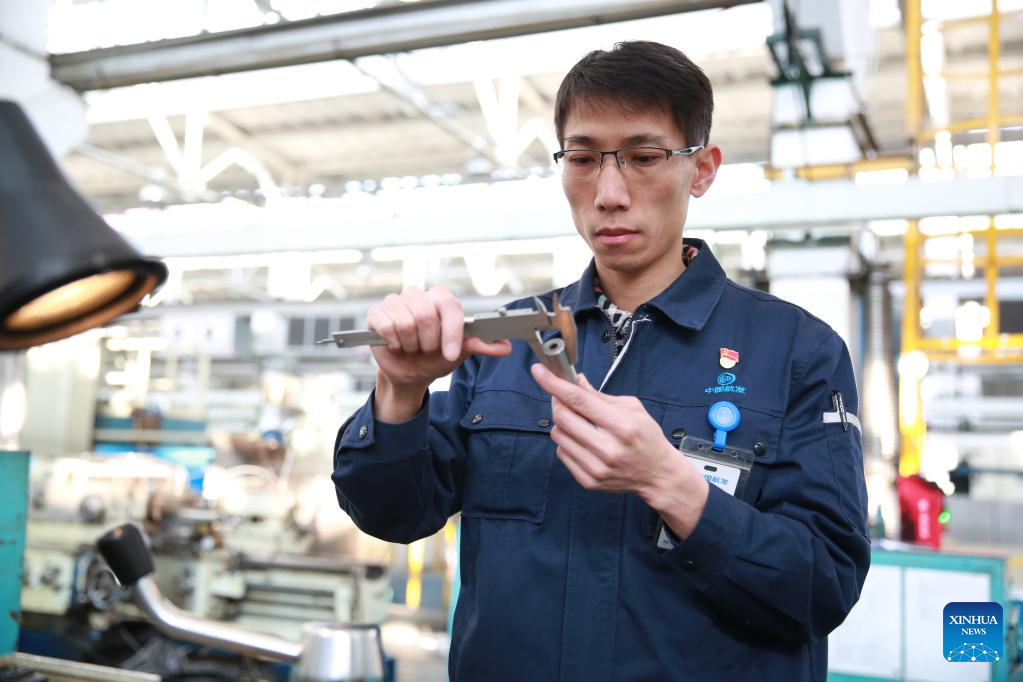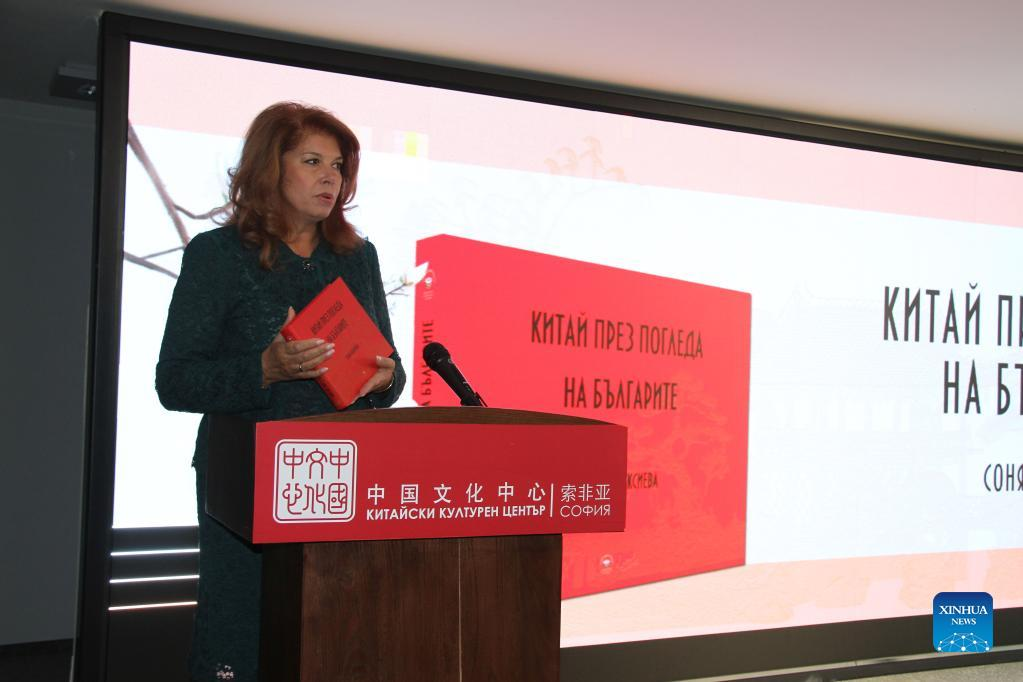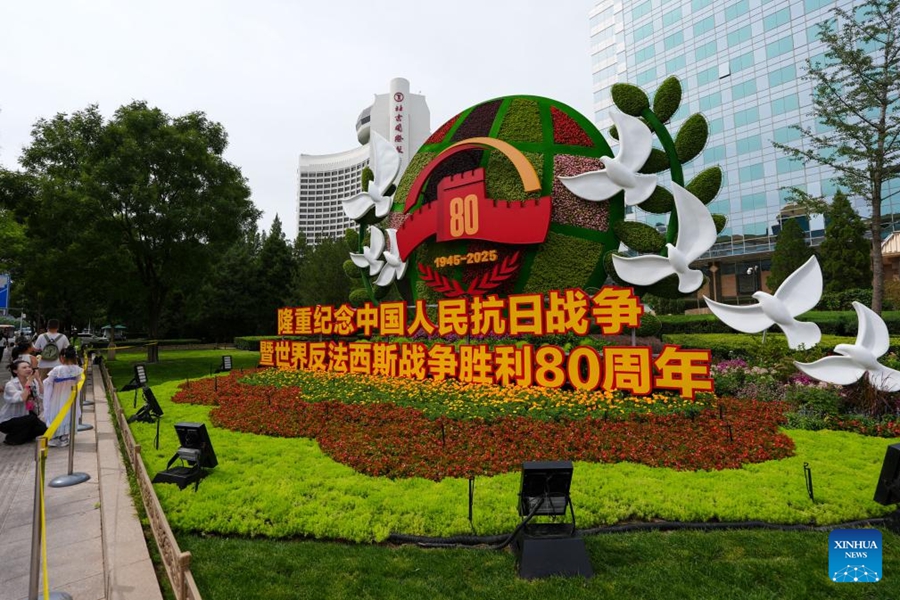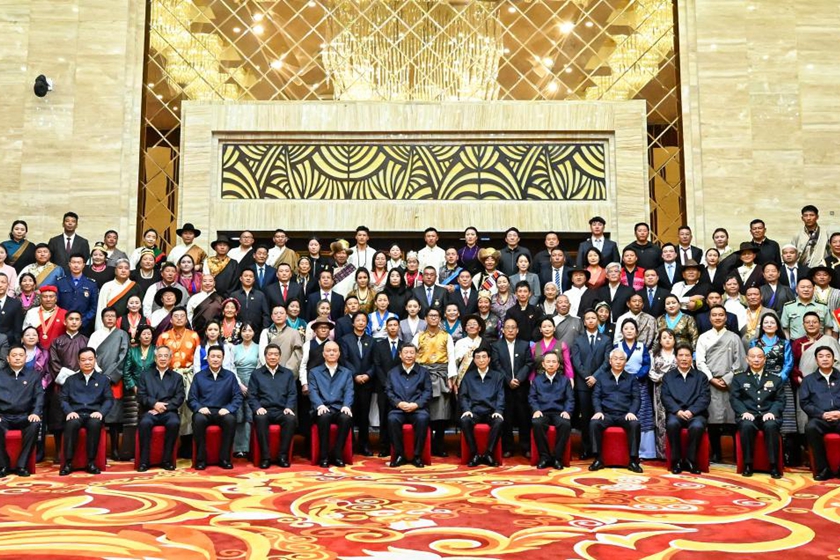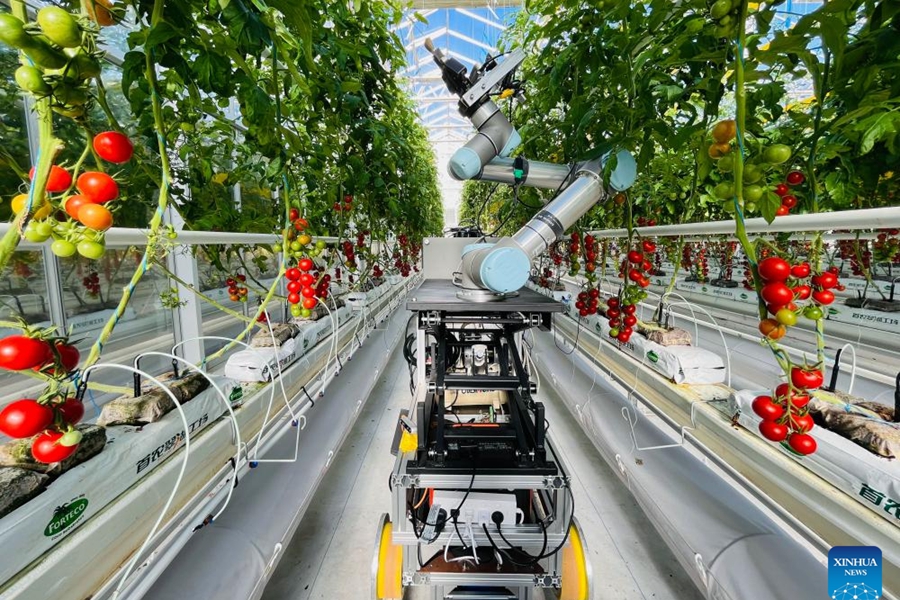
July 12 marks China's National Low-carbon Day. Meanwhile, according to early studies from the World Meteorological Organization on July 10, the beginning of July was the hottest week on record for the planet.
To cope with the climate challenge, it's imperative to reduce carbon emissions and encourage both enterprises and individuals to contribute to the transition to sustainable development. In recent years, Jiangsu has made strides in these endeavors.
Digitalization helps enterprises' green transition
The industrial sector contributes significantly to energy consumption and carbon emissions. For iron and steel enterprises, the key is to improving energy efficiency and reducing energy consumption. Building an intelligent energy management system at Nanjing Iron and Steel Co Ltd (NISCO) is such an example. The system provides a clear picture of energy use in real-time across all production stages, covering raw materials, steelmaking, ironmaking and steel rolling. An analysis of the data can help find out reasons for the increase in carbon emissions. Data showed NISCO's energy management system has led to a reduction of 6.4% in energy consumption per tonne of steel and a saving of 450,000 tonnes of coal annually.
Wu Yan, general manager of Jiangsu Skytech Industrial Internet Co Ltd, said the company has leveraged its experiences in energy management projects and strengths in emissions monitoring and reporting through digital technology to help public institutions gain a real-time understanding of energy consumption and carbon emissions.

(CFP Photo)
Embracing low-carbon lifestyle
People can help protect the planet in many ways, such as travelling by public transport, reducing the use of disposable tableware, installing energy-saving light bulbs, and buying second-hand goods. These eco-friendly choices can directly reduce the waste of resources and also shape how companies produce and market their products.
In recent years, cities in Jiangsu have explored programs to reward green and low-carbon practices. In Nanjing and Wuxi, citizens can obtain carbon points in exchange for gifts when choosing public transportation such as buses, subways or cycling.
Schools in the province are also taking measures to reduce carbon footprints. The hot water supply for bathing at Wuxi Institute of Technology now combines air source heat pumps and solar heating systems to reduce the use of fossil fuels. The institute has also offered elective courses focusing on environmental protection, sustainable development, an eco-friendly lifestyle on campus. Efforts were also made to conduct research on innovative energy conservation as well as application of renewable energy such as sunlight.
Expanding low-carbon transformation
Data shows that Jiangsu has maintained an average annual economic growth of 5.5% since 2018 while the energy intensity -- energy consumption per unit of GDP –- decreased by 2.4% on average. This achievement has made Jiangsu a top performer in China in terms of minimizing energy intensity.
Jiangsu has released a catalog for promoting energy-saving technologies in the industrial sector and built a nationally leading energy consumption standard system. The province has a total of 23 enterprises recognized in the nationwide pilot program of green design for industrial products.
Ji Ming, deputy director of the province's Development and Reform Commission, said green buildings accounted for more than 99% of new buildings in cities and towns in Jiangsu, and the province has taken the national lead for many years in terms of the scale of green buildings and energy-saving buildings.
In the field of transportation, over 70% of urban residents choose public transportation and the proportion of new energy buses and taxis reached 72% and 59% of the total fleet, respectively.
Ji said Jiangsu will strengthen the role of green investment and financing to stimulate the low-carbon transformation while aligning with the nation's "dual carbon" goal - achieving carbon peak by 2030 and carbon neutrality by 2060, which can also promote the integration of the Yangtze River Delta on the green path at a high quality.





